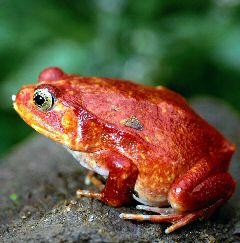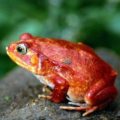
The disappearance of frogs and other amphibians around the world continues unabated, but a new study may shed some light on what’s happening to our slimy friends. Conducted by Rick Relyea, from the University of Pittsburgh, the new study has built on his previous research examining the effects of the herbicide Roundup™ on frogs and tadpoles.
Published in the journal Ecological Applications, the findings showed that Roundup™ was deadly to tadpoles at lower concentrations than previously tested and that the presence of soil did not dilute the chemical’s effects. While his previous research showed that Roundup™ was deadly to tadpoles, this study found that the product kills frogs in addition to tadpoles. Previous research established it is the product’s surfactant (polyethoxylated tallowamine), added to make the herbicide penetrate plant leaves, and not the active herbicide (glyphosate), that is lethal to amphibians.
For grown-up tadpoles, the results were no less worrying. The researchers found that the recommended application of Roundup™ killed up to 86 percent of terrestrial frogs after only one day. “The most striking result from the experiments was that a chemical designed to kill plants killed 98 percent of all tadpoles within three weeks and 79 percent of all frogs within one day,” Relyea concluded.


















Comments are closed.